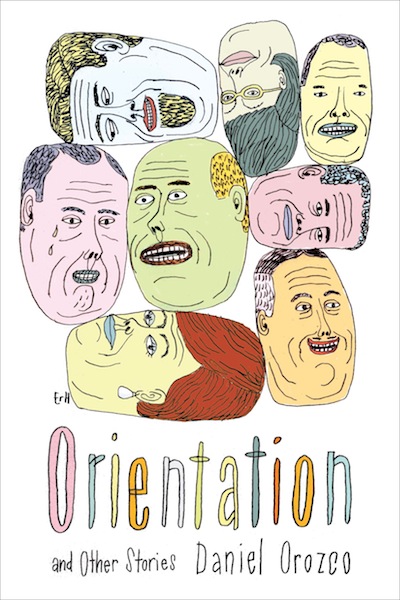DO: On the job is where we all have to be, whether we like it or not. My mother packed licorice in a factory for over twenty years, and came home tired but still human, and I am in awe of how she managed that. For most people, the workplace is an extremely structured and regulated environment. At home, you can play with the kids, or not; you can walk the dog, or not; you can sit in your underwear with a beer, or not. You get to choose. But at work you have to be civil to a boss or co-worker who drives you crazy; you have to show up at 8 and leave at 5 and take lunch from 12 to 1 (not 1 to 2, not 12:15 to 1:15); you have to spend all day with people that you didn’t choose to spend all day with, and you have to do it for about a quarter of every week for the rest of your life. This is what most jobs are like. How do you balance who you are with who you have to be at work? And after years and years, is there even a difference? Drama in story derives from this question: “Who am I?” In the arena of the workplace, the drama of identity is a drama of extremity, sharp and distilled. The workplace is where we reveal our true selves. It’s Hemingway’s “grace under pressure.”
What’s the worst job you’ve ever had?
DO: One summer between my junior and senior year in high school, I got a job in a fiberglass fabrication shop somewhere in South San Francisco. We worked with woven fiberglass, and mixtures of sand and polymers that we hardened with catalytic agents. It was a toxic place; we washed our hands in acetone to get the chemical binders and hardeners off, and our arms itched from the embedded glass fibers, and our boss was a jerk. I quit after six weeks. I remember working with a tiny and soft-spoken East Indian man named Khaista, who persevered at this crummy job with remarkable dignity. It was my summer job, but it was Khaista’s job job, and that floored me.
You’re known for being pretty meticulous with your writing, sometimes spending a month on the first page and poring over thesauruses and dictionaries looking for that ever-elusive “right word.” Where did you learn to be so patient and diligent?
DO: This answer may sound flip but basically, you learn to be patient and diligent by … being patient and diligent. After the story “Orientation” came out, I got calls from editors and agents asking for another story, or for the novel. But I didn’t have another story. I didn’t have a novel. So the calls stopped, and nobody was asking for anything. So I just kept my head down and did my work, finishing a story every few years. No deadlines, no expectations. There was a time when I didn’t think I’d ever get a book published, ever get enough pages together to add up to a collection, so each story was this discrete project I worked on until it was done (whatever “done” means).
What was your first concert?
DO: Paul McCartney and Wings, at the Cow Palace, back in 1975.
If you could live inside one movie, which would it be and why?
DO: How about L.A. Confidential. For the suits.
If you could visit any other time period and place in history, which would it be and what would you do there?
DO: I’m not very good at this. As a writer, I can imagine anything for characters in a fictional world, but projecting myself into some sort of hypothetical existence is pretty impossible. For instance: any period/place for me would require things I simply don’t want to be without, like A/C and refrigeration, lip balm and Chemex coffee makers and modern medical/surgical procedure. The Silly Question ultimately exposes me as dreary and awkward, barely comfortable in my own skin, and much less so anywhere else except where I am right now.
If you could invite 3 people (dead/alive/fictional) to your dinner party, who would they be and why?
DO: Julia Child, Parker Posey, the unnamed narrator of Melville’s “Bartleby the Scrivener.” Each is respectively dead/alive/fictional. They’d be the last to leave the dinner party, I think, and be fun to sit around the table drinking and chatting with.
I hear that you’re currently working on your first novel. How is it going so far? Can you tell us a little about what kind of narrative problem you’re tackling this time?
DO: I started the novel-thing (can’t quite call it a novel yet) about five or so years ago, and haven’t looked at it for about a year, but am getting around to working on it in earnest very soon. Novels are long — so many words! — and it’s been daunting to be immersed in the world of my novel-thing for so many years. The biggest challenge is to keep it interesting, to want to go back to it. As slow as I may be writing a story, a story’s compass is brief, its drama tight, its structure precisely defined. I resolved to write a story that was plotted and structured — things happening, something stolen that needs to be retrieved, characters intent on vengeance, etc. so I laid that out many years ago — not an outline, per se, but more of a map. I know where I need to go. Short story or novel, I think that structure is the primary narrative problem; once I kind of nail that, I’ll work until it’s done.



